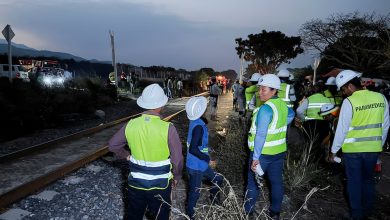EAC crafts unified climate message for COP30

BELEM, Brazil: THE East African Community (EAC) Secretariat, in partnership with German International Cooperation (GIZ), convened a regional expert meeting in Entebbe, Uganda, to craft a unified climate message ahead of the 30th UN Climate Conference (COP30), set for November 2025 in Belém, Brazil.
Held from Monday to on Wednesday, the meeting brought together climate experts, government officials and development partners from across the region to align on shared climate priorities and policy direction.
EAC Deputy Secretary General for Infrastructure, Productive, Social and Political Sectors, Mr Andrea Ariik Malueth, stressed the importance of regional unity in climate diplomacy.
“The East African region is highly vulnerable to climate change impacts, droughts, floods and food insecurity,” he said.
“A coordinated, wellarticulated message will amplify our voice and ensure our communities’ needs are addressed at COP30.” Mr Malueth said that EAC’s engagement must be strategic, evidence-based and forward-looking, supported by strong collaboration among Partner States. GIZ Technical Advisor on Water and Climate, Ms Rosemary Masikini, echoed the need for EAC and other vulnerable regions to influence global climate decisions.
ALSO READ: Tanzania at the Liberation Movements Summit: charting a course for African Unity and sovereignty
She affirmed GIZ’s ongoing support for EAC’s policy development and implementation of climate commitments. The meeting also reviewed and validated the draft EAC Climate Change Policy, which aims to guide both regional adaptation and mitigation efforts.
“Regional validation ensures we have a robust, inclusive, and future-oriented climate policy,” added Hon. Malueth.
Following technical review and input, the revised draft will be submitted to the Sectoral Council for adoption. The EAC Secretariat reiterated its commitment to work with Partner States to ensure the policy is actionable and reflects regional climate challenges.
The Entebbe meeting marked a key step in strengthening East Africa’s collective climate voice on the global stage.





